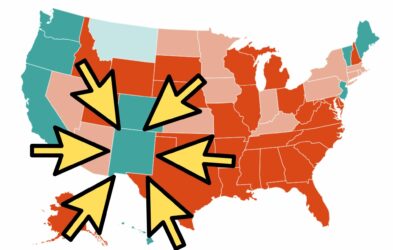By Valerie Lovelace
I work with It’s My Death and the Death with Dignity movement to reshape how we approach dying and end-of-life conversations. Many people across the country are making inroads into the difficulty of end-of-life conversations and preparation. Yet it typically remains quite unsettling for most to come face to face with someone who carries a terminal diagnosis.
I often hear variations of this reinforcement, “It’s not easy talking about death or making preparations for it.”
I beg to differ. Talking about death is easy. And so is making preparations. Being willing to do that is the real challenge. Making it personal is the most difficult of all. And I can tell you with certainty that it is far easier to talk about death when you aren’t also actively dying.
When we say that talking about death is not easy, we simply sidestep the fact that death belongs to us in a very personal way. In order to make any headway, we must lay claim to our mortality.
Try that on for a moment:
“I am not willing to talk about my death or make preparations for it.”
It has a very different ring, doesn’t it?
The fact is, each of us is terminal and talking about that in general terms without any ownership creates a fundamental problem: the illusion that death is not a personal matter. Dying is the most intimate experience of a human life—leaving the world as we know it, naked, weak, and more vulnerable than ever. For anyone to imagine they know what is in the best interest for every dying person is a kind of self-assured ignorance and arrogance that leaves me pretty astonished.
The only thing I can do when I hear comments to that effect is imagine how people might say the things they say in a more personal way with a little ownership:
- “We are meant to die naturally,” becomes, “I want to die without any intervention.”
- “Our death is up to God,” becomes, “My death isn’t up to me.”
- “Doctors are to do no harm,” becomes, “I want my doctor to do everything possible.”
- “It’s a slippery slope,” becomes, “I don’t know what will happen when I’m dying.”
It’s my heartfelt belief that any dying person should have access to everything they want and need when dying. That should be an open ongoing and public conversation.
We should be willing to speak of and hear the truth about dying and how that is sometimes excruciatingly difficult. How else will we create unconditionally compassionate, full-service end-of-life care in the United States?
Eva Thompson and Holly Best are two Mainers who want to help change the conversation (and the law) in Maine. Their stories are personal, raw, and incredibly honest.
That’s what it takes to legitimately talk about dying.
About the Author
Valerie Lovelace is the executive director of It’s My Death, our partner organization in Maine, which teaches “others how to be with dying, how to speak and listen to one another, and how to go on even when afraid.” She is an inter-faith minister, a hospice volunteer, a artist, a homeopathic practitioner, a Reiki Master, a U.S. Navy veteran, a trained EMT, and the parent of three adult children.
Read Val’s profile in our Winter 2016 Dignity Report newsletter and our open call for guest writers.
Featured image courtesy of It’s My Death.

No comments.